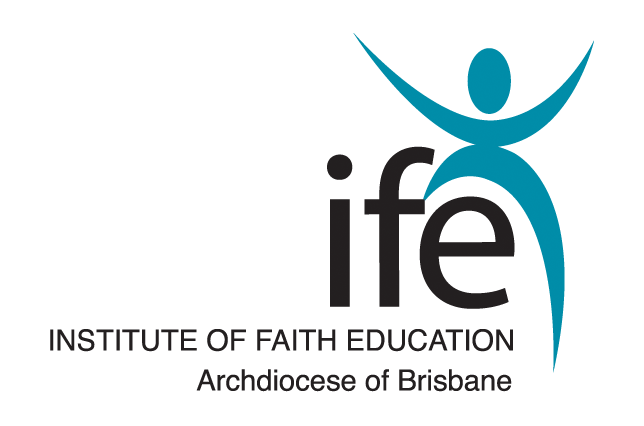Address
Contact IFE
Categories
Nationally Accredited Training (VET)Description
As you move forward, make sure that you choose the right path. What does this mean? It means “journeying” through life, and not “wandering aimlessly”.
Pope Francis, Notre Dame College, Dhaka, Bangladesh, 2 December 2017
The Compass Courses deliver nationally accredited qualifications which provide the opportunity to study and reflect on beliefs and ethics and to develop vital employability skills for now and into the future. Compass (11236NAT Certificate III in Christian Ministry and Theology) also has a more advanced option. Compass Plus is completed as a 11237NAT Certificate IV in Christian Ministry and Theology.Benefits
-
- Compass delivers great content that is applicable to life, employment and further study.
- A nationally recognised and accredited qualification that contributes up to 8 credits towards the QCE. It can also contribute to the ATAR.
- A completed Certificate III or IV can provide direct entry to university.
- Improves chances of employment post school and/or university.
- There are no exams. As a competency-based qualification assessment includes, for example, practical projects, group work, short written or verbal responses, team activities, presentations and creative learning tasks.
- Contemporary and relevant to current issues in the Australian community.
- A course highly valued by learners
What will you study?
Both Compass and Compass Plus courses cover a wide variety of topics that will equip students with real world skills that can be useful now and in the future, especially problem solving, creativity, social intelligence, resolving conflicts and customer service skills.Study Areas include:
-
- Critical and creative thinking and teamwork skills.
- Leadership skills. This is a particular focus at the advanced Compass Plus (Certificate IV) level.
- Research skills including how to use the internet effectively for research.
- Core teachings of Christianity. You will also have the opportunity to explore other world religions to understand common themes and differences.
- Core Catholic values and how these shape an organisation, such as a school, hospital, aged care facility, child care or social services run by a Catholic organisation. Your learning here can be applied to consider the role of values more generally in any organisation, Christian or secular. You will learn to think about how values shape a workplace or organisation and how you can contribute to making a positive difference.
- The Bible: its content, interpretation and relevance today.
- Ethics, social justice, care for the earth and other current moral/ethical issues. You will learn strategies for analysing issues and making sound ethical decisions.
- Your own worldview and how worldview shapes your perspective. You will learn to consider and articulate, your own values and beliefs.
Competencies completed:
Competencies completed in the course depend on whether you are completing the course as 11236NAT Certificate III in Christian Ministry and Theology or at the more advanced level of 11237NAT Certificate IV in Christian Ministry and Theology.11236NAT Certificate III in Christian Ministry and Theology
Eight competencies need to be completed to achieve this award. The competencies are:-
- NAT11236001 Develop foundational knowledge of the Bible
- NAT11237003 Develop and apply knowledge of key Christian beliefs
- NAT11236002 Research Christian Scripture and Theology
- NAT11236003 Study and present a biblical topic
- NAT11236005 Support the mission and values of a Christian organisation
- NAT11236009 Communicate theology in everyday language
- NAT11236008 Explain own beliefs to others
- PSPGEN114 Work effectively with diversity and inclusion
11237NAT Certificate IV in Christian Ministry and Theology
Nine competencies need to be completed to achieve this award. The competencies are:-
- NAT11237001 Apply knowledge of the Bible
- NAT11237002 Interpret biblical texts
- NAT11237003 Develop and apply knowledge of core Christian beliefs
- NAT11236002 Research Christian Scripture and Theology
- NAT11237004 Discuss a topic from a Christian perspective
- NAT11237005 Apply Christian ethics to contemporary issues
- NAT11238006 Analyse and compare worldviews and world religions
- NAT11237012 Develop own leadership skills
- NAT11236005 Support the mission and values of a Christian organisation
Course Overview
Module 1 – Choices
-
- Current moral/ethical issues and case studies provide the opportunity to reflect on the choices we make and how these impact on life.
- Understand the importance of service learning and develop your skills at articulating and debating ideas. These skills of articulating and debating ideas are formally assessed at Certificate IV level.
Module 2 – The Story
-
- The Bible is one of the most influential books in the world. In this module you will learn to understand it better and will discuss its relevance today.
- Develop your teamwork, project management and communication skills in the practical project.
Module 3 – Community
-
- Consider the values and beliefs that shape Catholic communities and explore how they apply in your own school
- Learn teamwork and problem solving skills in your practical project.
Module 4 – The Edge
-
- Reflect on your life journey and explore the big questions in life.
- Articulate your own vision to support your future pathway.
Assessment
Students learn through a variety of hands-on activities that are relevant to real life situations. Compass Plus students are required to demonstrate greater depth of understanding of course content and complete additional assessment. The ability to articulate and debate ideas is formally assessed through an additional competency not assessed at the Compass level. As a vocational education training course, assessment is competency-based. There are no exams. Assessment includes, for example, practical projects, group work, short written or verbal responses, team activities, presentations and creative learning tasks. Projects focus on generic skills such as solving problems in a workplace, ethical thinking and global citizenship.What is the difference between Compass and Compass Plus?
-
- The difference between Compass (Certificate III) and Compass Plus (Certificate IV) is that Compass Plus requires greater depth and breadth of understanding. Learners at this level are expected to be able to discuss, interpret, compare, and reflect critically on course content beyond the expectations set at Certificate III. Learners also complete an additional competency that demonstrates their skills in articulating, presenting and debating ideas.
- Learners at the more advanced level require greater literacy skills and the capacity and willingness to complete readings and written assignment work in their own time. It is possible to move from one level of the course to the other, so if you start Compass Plus and find it too challenging you can move across to Compass (Certificate III).
Contribution towards the QCE
Completion of either the Certificate III (Compass) or Certificate IV (Compass Plus) may contribute up to 8 credits towards the Queensland Certificate of Education (QCE). Partial completion of the qualification may contribute some credits towards the QCE. This is allocated based on the number of competencies the learner has achieved. For further information visit https://myqce.qcaa.qld.edu.au/your-qce-pathway.html or contact IFE.Contribution towards an ATAR
Compass and Compass Plus can contribute towards an ATAR. For more information visit https://www.qtac.edu.au/atar/Certificate III and IV as alternative pathways to university
As a professional qualification, some universities will offer entrance to courses based on completion of a VET Certificate III or IV. Some universities calculate and post a ranking (equivalent to an ATAR) based on a completed VET certificate. This is done by each university independently. Contact us for more information. QTAC also provides a list on their website in their ATAR Quick Fact Sheet QTAC: ATAR and Vet Qualifications. Access this at https://www.qtac.edu.au/atar/Pathways to employment
The Catholic Church is one of Australia’s largest employers, with over 180,000 employees spread across a range of agencies, employing 2% of the Australian workforce in education, health care, social services, child care and aged care. 11236NAT Certificate III in Christian Ministry and Theology and 11237NAT Certificate IV in Christian Ministry and Theology provides a sound understanding of the values, frameworks and teachings (e.g. Catholic Social Teaching) that underpin Catholic health, education, child care, social services and aged care. These qualifications enable graduates to work more effectively in a Catholic organisation. In the Catholic Education sector, for example, the Certificate III in Christian Ministry and Theology can contribute towards the set requirements for accreditation to teach in a Catholic school. Students considering careers in Catholic or Christian health, education, childcare, social services and aged care will find the Compass and Compass Plus courses relevant. This also includes those considering careers in business or management or seeking to develop their own personal and ethical frameworks. The course builds far reaching generic skills that are relevant to careers in any sector, including critical and creative thinking, communication, collaboration, teamwork, personal and social skills. Previous course participants have used this course as a pathway to-
- tertiary education, in some cases gaining entrance specifically as a result of completing this qualification
- work in a Catholic school, either on completion of an education degree or, in another instance, continuing to work at a college while completing further education
- work in secular contexts including one participant who gained a position in a hospital as a result of having this qualification on his CV.




